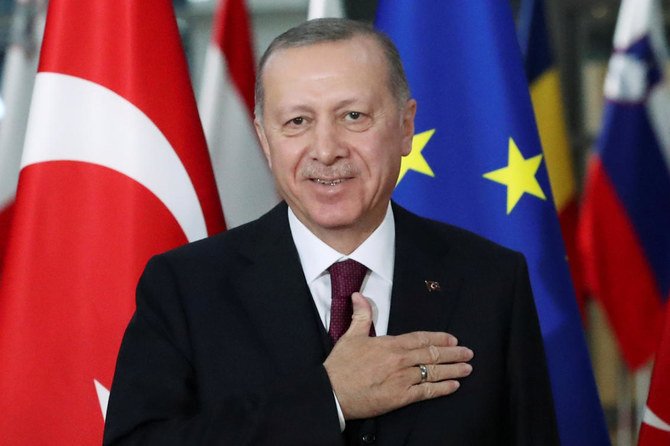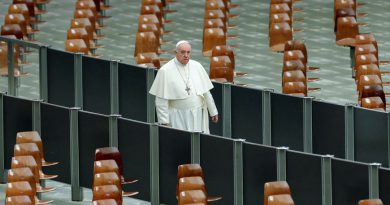As global markets and allies reel, Turkey’s Erdogan looks inward
Istanbul (Reuters) – With twin shocks announced in the dead of night, President Tayyip Erdogan sacked Turkey’s central bank chief and pulled out of a treaty to protect women, stunning financial markets and Western allies.
As he languishes in opinion polls, that international alarm may be of less concern to Turkey’s longest-serving leader than the response of conservative voters whose support underpins his nearly two decades in power — but has been slowly slipping.
Polls show combined backing for his Islamist-rooted AK Party (AKP) and nationalist MHP allies falling well below 50%, leaving him with an uphill struggle to claw back votes ahead of elections due by 2023.
By dismissing a central bank governor who hiked interest rates and pulling out of a treaty he portrayed as opposing family values, Erdogan is positioning himself as a defender of ordinary Turks, analysts say.
Pro-government media and supporters on Twitter said Erdogan was taking a stand against foreign “tutelage”.
“The era of formatting Turkey with a Western mind is over,” Ibrahim Karagul, editor of the Yeni Safak newspaper wrote after Erdogan’s weekend moves. “The era of remote control from Western capitals … will come to an end.”
The Istanbul Convention which Turkey is leaving pledged to prevent domestic violence and promote equality, but many conservatives in Turkey say it undermined family structures, encouraging violence. Some were hostile to its stance against discrimination on grounds of sexual orientation.
Opponents of former central bank governor Naci Agbal said his hawkish attitude on interest rates would benefit only foreign investors, at the expense of Turkish workers and businesses.
Erdogan has also always championed low interest rates to promote economic growth and argued, contrary to orthodox economics, that high rates drive up inflation.
The president has not spoken in public in the last three days, as he prepares to address an annual AK Party meeting which aims to seize the domestic political initiative.
“He’s going to drive a really nativist message that he is representing Turkey’s core values against the corrupt values coming from the West,” said Soner Cagaptay, a director at the Washington Institute for Near East Policy.
Autocratic Turn
Erdogan’s actions came in the same week that a prosecutor filed a case to close the pro-Kurdish opposition Peoples’ Democratic Party (HDP) following demands from his MHP nationalist allies to disband it for alleged links to militants.
The move was criticised by Turkey’s Western allies for undermining democracy, but the presidency said the HDP had “organic ties” to the outlawed Kurdistan Workers Party (PKK), designated a terrorist group by the United States and European Union. The government also says the judiciary is independent.
“The irony is that Erdogan’s most autocratic turn so far also comes at a time of his charm offensive towards Europe and the United States,” Cagaptay said.
Turkey is trying to calm tensions with the European Union over a maritime dispute with EU members Greece and Cyprus, and says it has resumed diplomatic contacts with Egypt. Ankara also says it wants good relations with the Biden administration, although Erdogan and the new U.S. president have yet to speak.
At home, however, Erdogan was continuing “to play on religion and nationalism to try to shore up his core support”, said Fadi Hakura, a Turkey expert at Chatham House in London.
With voters increasingly focused on the impact of rising prices and slow growth, analysts and pollsters say Erdogan will struggle to win back significant support without an economic upturn.
“Closing down the HDP or cancelling the Istanbul convention will not be enough to ramp up support for the AK Party, as long as the economy is bad,” said Mehmet Ali Kulat, owner of polling firm Mak Danismanlik.



